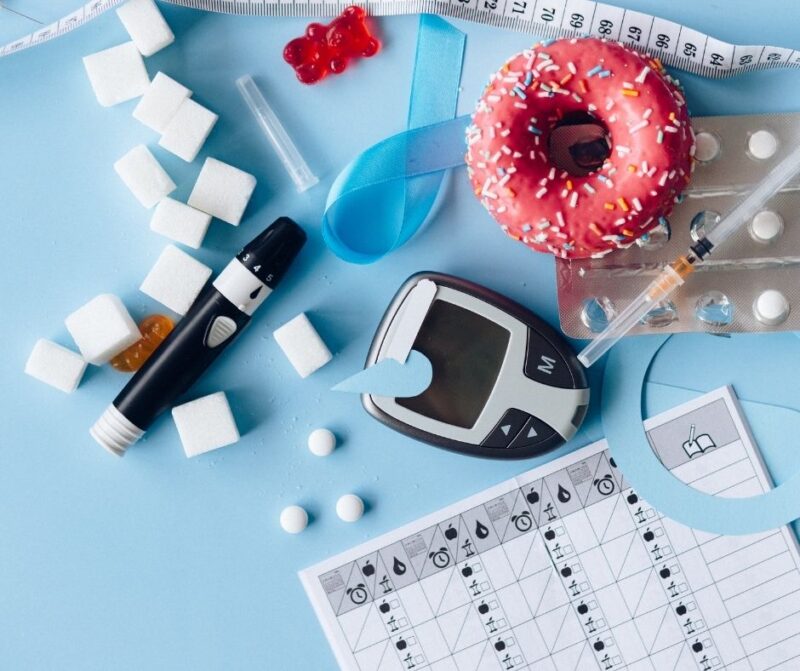
Diabetes is a condition which can affect anyone but with these diabetes prevention tips you can look to ensure you can prevent diabetes by maintaining a healthy weight and following these simple steps. Stay active to control blood sugar. Eat a balanced diet full of fruits, veggies, whole grains, and lean proteins. Keep an eye on blood sugar levels regularly. Steer clear of smoking and limit alcohol. Eye exams catch diabetes-related issues early. Checkups reveal overall health conditions. Manage stress and sleep well for diabetes control. Regular physical activity lowers risks. Eating healthy is crucial for prevention. Monitor blood sugar levels for abnormalities. Keep up with eye exams for early detection. Taking these steps is key to preventing diabetes complications and maintaining overall health.
Key Takeaways
- Maintain a healthy weight to reduce diabetes risk.
- Engage in regular physical activity to control blood sugar.
- Follow a balanced diet rich in fruits, vegetables, and lean proteins.
- Monitor blood sugar levels regularly for early detection.
- Avoid smoking and limit alcohol intake to lower complications.
Understanding Diabetes Risk Factors
To understand the risk factors for diabetes, consider the impact of lifestyle choices on your overall health. Diabetes risk factors can be influenced by various factors such as diet, physical activity level, weight, and genetics. One of the primary risk factors for type 2 diabetes is being overweight or obese. Excess weight, especially around the abdomen, can increase insulin resistance, leading to higher blood sugar levels. Additionally, a sedentary lifestyle can contribute to the development of diabetes. Lack of regular physical activity not only affects weight management but also impairs the body's ability to regulate blood sugar levels effectively.
Moreover, dietary habits play a crucial role in diabetes risk. Consuming a diet high in processed foods, sugar, and unhealthy fats can elevate the risk of developing diabetes. On the other hand, a diet rich in whole grains, fruits, vegetables, lean proteins, and healthy fats can help lower the risk. Understanding these lifestyle factors and making healthier choices can significantly reduce your risk of developing diabetes.
Importance of Regular Physical Activity
Engaging in regular physical activity is essential for maintaining optimal health and reducing the risk of developing diabetes. Regular exercise helps control weight, lower blood sugar levels, and improve insulin sensitivity. Aim for at least 150 minutes of moderate-intensity aerobic activity per week, such as brisk walking, cycling, or swimming. Additionally, include strength training exercises at least two days a week to build muscle mass and enhance metabolism.
Physical activity not only helps prevent diabetes but also reduces the risk of heart disease, stroke, and other health conditions. It promotes better blood circulation, strengthens the heart, and boosts overall well-being. Remember to choose activities you enjoy to make it easier to stay consistent. Whether it's dancing, hiking, or playing a sport, find something that keeps you motivated and engaged.
Incorporating regular exercise into your routine can have a significant impact on your health and diabetes prevention efforts. One of the key diabetes prevention tips is to stay active, stay healthy!

Healthy Eating Habits for Diabetes Prevention
Regularly incorporating healthy eating habits into your daily routine is crucial for preventing diabetes and maintaining overall well-being. A balanced diet plays a key role in managing blood sugar levels and reducing the risk of developing type 2 diabetes. Focus on consuming a variety of nutrient-dense foods such as fruits, vegetables, whole grains, lean proteins, and healthy fats. Limit foods high in added sugars, unhealthy fats, and excessive salt.
Monitoring your carbohydrate intake is particularly important as carbohydrates directly impact blood sugar levels. Choose complex carbohydrates like whole grains and legumes over refined grains and sugary snacks. Pay attention to portion sizes to help control blood sugar levels and maintain a healthy weight.
Additionally, incorporating more fiber into your diet can improve blood sugar control and lower the risk of developing diabetes. Foods rich in fiber include fruits, vegetables, whole grains, nuts, and seeds. Stay hydrated by drinking plenty of water throughout the day to support digestion and overall health are also key diabetes prevention tips.
Monitoring Blood Sugar Levels
Monitoring your blood sugar levels is essential for effectively managing diabetes and preventing complications. Regular monitoring allows you to track how your body responds to different foods, activities, and medications, helping you make informed decisions about your diabetes management. It's recommended to check your blood sugar levels multiple times a day, especially before and after meals, before and after exercise, and before bedtime.
One of the most common ways to monitor blood sugar levels is by using a glucose meter, which provides immediate results by analyzing a small drop of blood. Continuous glucose monitoring systems offer real-time insights into blood sugar trends throughout the day. Keeping a log of your blood sugar readings can help you and your healthcare team identify patterns and make necessary adjustments to your treatment plan.
Remember that maintaining stable blood sugar levels is crucial for preventing complications associated with diabetes, such as nerve damage, kidney disease, and heart problems. By monitoring your blood sugar levels diligently and making lifestyle modifications as needed, you can take proactive steps towards managing your diabetes effectively.

Stress Management and Sleep Hygiene
To effectively manage your diabetes and promote overall well-being, prioritizing stress management and implementing good sleep hygiene practices is essential. Stress can significantly impact blood sugar levels, making it crucial to find effective ways to reduce and manage stress.
Here are some strategies to help you better manage stress and improve your sleep hygiene:
- Regular Exercise: Engaging in physical activity can help reduce stress levels and improve sleep quality.
- Mindfulness and Relaxation Techniques: Practices such as meditation, deep breathing exercises, or yoga can help calm the mind and body, reducing stress.
- Establishing a Bedtime Routine: Creating a consistent bedtime routine can signal to your body that it's time to wind down and improve the quality of your sleep.
- Limiting Screen Time Before Bed: The blue light emitted by screens can interfere with your sleep cycle, so it's beneficial to avoid screens at least an hour before bedtime.
Incorporating these diabetes prevention tips and practices into your daily routine can help you better manage stress, improve your sleep quality, and support your overall diabetes prevention efforts.
Weight Management Strategies
Implementing effective weight management strategies is crucial for optimizing your diabetes prevention efforts and overall well-being. Maintaining a healthy weight can significantly reduce your risk of developing type 2 diabetes. One key strategy is to focus on a balanced diet rich in fruits, vegetables, whole grains, lean proteins, and healthy fats. Portion control is also essential to prevent overeating and weight gain.
Regular physical activity plays a vital role in weight management and diabetes prevention. Aim for at least 150 minutes of moderate-intensity exercise per week, such as brisk walking, cycling, or swimming. Strength training exercises should also be included at least twice a week to build muscle and boost your metabolism.
Monitoring your weight regularly can help you track your progress and make necessary adjustments to your diet and exercise routine. Consulting a healthcare provider or a registered dietitian can provide personalized guidance and support in developing a sustainable weight management plan tailored to your individual needs. Remember, small changes in your daily habits can lead to significant improvements in your weight and overall health.
Regular Health Check-ups and Screenings
For optimal diabetes prevention and overall health, staying up-to-date with regular health check-ups and screenings is key. These preventative measures can help catch potential issues early, allowing for timely interventions and better management of your health.
Here are some essential health check-ups and screenings that can aid in diabetes prevention:
- Blood Glucose Tests: Regular monitoring of your blood glucose levels can help identify any abnormalities early on.
- Blood Pressure Checks: High blood pressure can increase the risk of developing diabetes; therefore, routine checks are crucial.
- Cholesterol Screenings: Monitoring your cholesterol levels is important as high cholesterol levels can contribute to diabetes and heart disease.
- Eye Exams: Regular eye exams can help detect any diabetes-related eye problems such as diabetic retinopathy.
Conclusion
In conclusion, by understanding some simple diabetes prevention tips, knowing your diabetes risk factors, staying physically active, eating healthily, monitoring blood sugar levels, managing stress, maintaining a healthy weight, and regularly getting health check-ups, you can significantly reduce your risk of developing diabetes.
Remember, prevention is key to managing your health effectively in the long run. Just like a well-oiled machine, taking care of your body through these steps will ensure smooth functioning and longevity.




